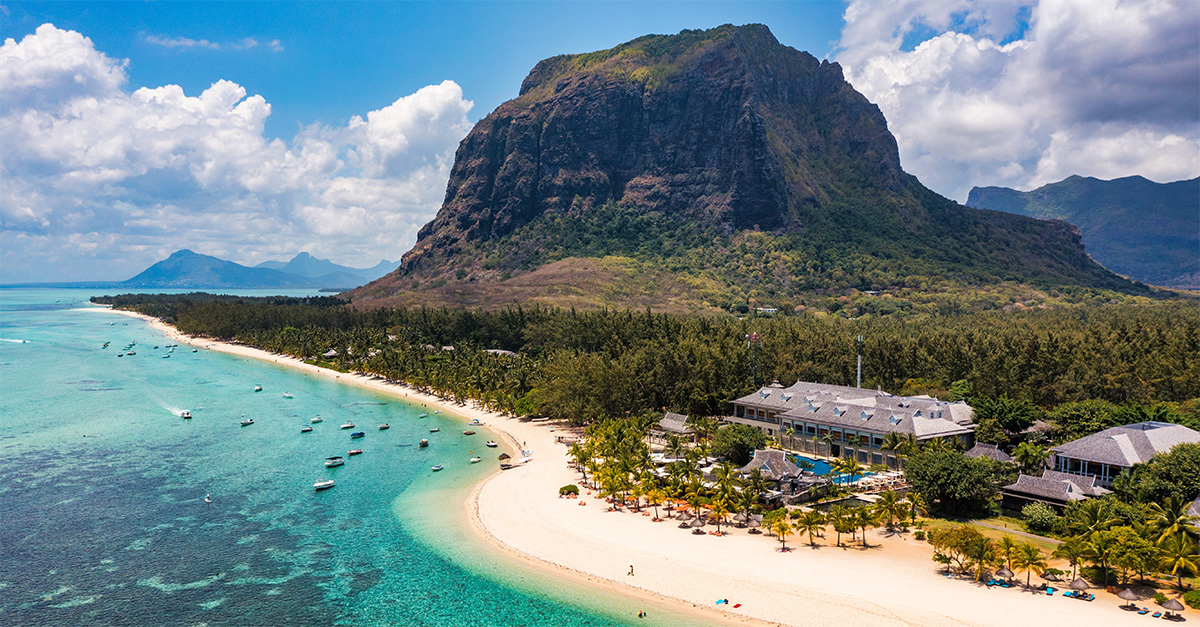What will be the key trends for the industry in the next few years? Linda Fox reports on the findings of the Global Forecast Forum
Expatriate, philanthropic and fairtrade travel will be among the key trends shaping the industry in the coming years.
According to World Travel Market’s Global Forecast Forum with Euromonitor, released today, the Middle East will be a clear winner through a growing expat community looking to travel home at least once a year, as well as take trips within the region.
Booming economies are drawing people to the region, creating a new target market for homeward-bound long-haul travel as well as short breaks. The Middle East is witnessing 5% growth annually in the expat community. In 2008, the United Arab Emirates alone will receive nine million international visitors with the UK making up the largest group at 1.2 million.
The growth in the expat community is creating two areas of opportunity:
- Top-end luxury sector
- Budget sector
A series of new low-cost airlines is enabling regional expats to travel, while predictions are that higher earners from further afield will be targeted with tailor-made luxury packages to Oman and Yemen, which seem more attractive in the light of rising oil prices.
Another region that is tipped to open up further because of the attractive business environment is Asia.
Banks have been increasingly looking to the region for growth and it accounted for 80% of global growth in financial institutions in the first quarter of 2008, although that picture is changing as the credit crunch deepens.
That said, cities including Hong Kong, Singapore, Tokyo, Shanghai and Mumbai have benefited from the increased business travel, and hotel groups are raising their game in terms of facilities such as limousines, free wireless broadband access and BlackBerry rental to cater for this market.
The region is also likely to present opportunities for the meetins, incentives, conferences and events market and developments such as Singapore’s Resort World, with 17 indoor and outdoor venues capable of hosting 12,000 delegates, demonstrate the anticipated volumes. Business arrivals to the region are forecast to rise from 52 million in 2007 to 80 million in 2012.
The Global Forecast Forum also highlights less developed regions, such as Africa, as likely to rise in popularity as ‘Fairtrade Tourism’, catches on.
According to the Fairtrade Labelling Organisation International there was a 47% growth in the purchase of Fairtrade products in 2007 – a market worth $3.6 billion.
There are already a number of niche operators active in the sector and Fairtrade branded holidays could become a powerful way of promoting the region. The idea of ethically produced products also links in nicely with the desire for experiential holidays and sustainable travel.
Along a similar theme is philanthropic travel, with cash-rich North Americans predicted to be taking time to ‘re-evaluate their priorities in life’, and spend time helping communities preserve their environments.
For many reasons, this is not a sector that is likely to become mass market but it may take hold in terms of suppliers offering short volunteer activities as part of a trip or partnering with specific projects and schemes.
As well as the destinations standing to benefit from inbound travel the forum also highlighted regions set to boom in terms of outbound travel, with Latin America emerging on top. Strong economic growth in the region and free trade agreements are driving many to put Europe top of the wishlist.
The area has seen a growing middle class population while low interest rates are providing disposable income for discretionary spend on areas such as travel.
International airlines, including Lufthansa, Air France and Iberia, are also fuelling the desire to travel with increased capacity to the region. However, Europe will not be the only area to benefit and, although more from a business travel perspective, already India and China are reporting huge increases in arrivals from Chile and Brazil respectively.
One final trend worth noting is travel networking, where online social communities take advantage of the network and use each other to facilitate travel. The report points to the development of sites such as couchsurfing.com offering free accommodation and/or advice to travellers as a good example, while home exchange is also likely to increase in popularity especially in an economic downturn.
The report
For the past three year WTM and Euromonitor International have worked in partnership to research and predict upcoming emerging trends in travel and tourism.
The top trends from each region at WTM:
- Africa
- Asia and Pacific
- Latin America,
- North America
- Europe
- Middle East
are compiled into a comprehensive report that is launched first exclusively to the press at the Forecast Forum on Monday November 10 at WTM and then to all visitors and exhibitors on Tuesday 11 November at the WTM Global Trends Report.
New UK pricing models
New UK pricing models have made inroads into the travel industry including ‘pay what you want’, auctions and ‘core free goods’.
Sandeman’s New Europe tours uses the ‘pay what you want’ model for free tours as a showcase for its paid tours. The free tours generate business for the paid tours – in Berlin, they have a referral rate of 46%.
In the restaurant sector, priceyourmeal.com is a restaurant online booking site allowing consumers to dictate what they spend on a meal at top restaurants using an auction process.
In the accommodation sector, Priceline invites customers to ‘name your own price’. Priceline is a blind auction where specific hotel brands and seller identities are unknown. The auction model allows operators to fill seats, rooms, rental cars and flights that would remain unsold if left to traditional methods.
Two large carriers, Ryanair and Air Asia, have frequent promotions offering free seats following the ‘core free goods’ model. All ancillary services are fee based.
Asia targets retired market
Asia, particularly Southeast Asia, has become a popular holiday and retirement destination for older Europeans. Retirees in these countries have a higher disposable income because of the strong euro and British pound. Plus healthcare costs tend to be cheaper.
There are various initiatives to attract retirees. ‘Malaysia My Second Home ‘ allows foreign citizens easy immigration access through a 10-year visa. Participants can own property and businesses and make investments, and can retain their citizenship and any privileges in their country.
Thailand is marketing luxurious beach resorts to the retiree crowd. It also introduced a retirement visa that allows retirees to reside in Thailand for one year.
Singapore has a condominium development planted next to two upcoming Integrated Resorts, where overseas buyers are permitted to own a 99-year lease for land with houses.
In April 2006, the UK Government introduced a ‘Qualifying Recognised Overseas Pensions Scheme’ that allows citizens to transfer their retirement savings to a foreign pension plan, without having to pay additional taxes to the Government.
The power of social networks
The Travel 2.0 concept refers to the importance of developing online travel communities and forums. These sites are driven by travellers interested in the opinions of fellow travellers in search of more authentic travel experiences.
Travel networking, particularly strong in Western Europe, is behind the rapid development of hospitality tourism and home exchanges.
Travel networking websites and activities are expected to develop steadily over the next five years.
Travel 2.0 has fuelled websites such as WAYN.com, where travellers exchange experiences and meet people online who live in the places they plan to visit. WAYN.com has 13 million users.
Websites like CouchSurfing.com and HospitalityClub.org have jumped in popularity over the past two years, reaching 710,000 and 330,000 users by September 2008.
These websites bring together travellers wanting a more authentic experience with locals willing to offer free hospitality and socialising opportunities. With home exchanges, travellers swap houses for their holiday. This has seen fast growth over the past few years
destmarkwtm08



